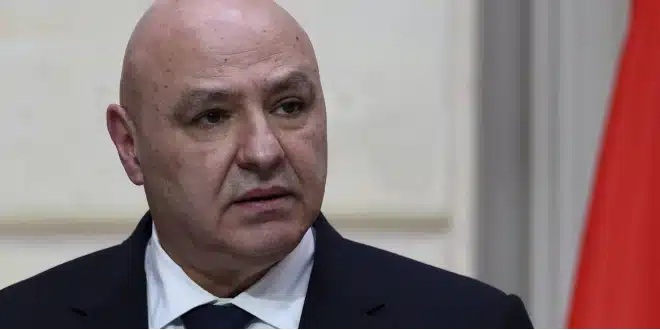Lebanese President Joseph Aoun has reaffirmed his government’s intention to assert full state authority over its territory, including a controversial plan to disarm Hezbollah. The announcement came during a speech marking Army Day on Thursday, signaling a pivotal moment for the country’s internal stability and its volatile relationship with Israel.
Aoun Calls for Unified Control of Arms in Lebanon
In his address, President Aoun emphasized the necessity of ensuring that only state institutions—the Lebanese Armed Forces and internal security—hold the right to bear arms across the country. “All armed groups, including Hezbollah, must relinquish their weapons to the national army,” Aoun declared. He urged Lebanon’s political class to support this “historic opportunity” to consolidate national authority and restore international confidence in the state.
This stance is part of a broader effort, driven in part by international pressure—especially from the United States—to reduce the influence of Hezbollah, which retains significant military capabilities and political clout. Aoun noted that Lebanon is reviewing U.S.-backed proposals concerning the disarmament process and intends to present a plan during an upcoming cabinet meeting to set a clear timetable for implementation.
Hezbollah Pushes Back as Israel Maintains Pressure
Hezbollah, widely considered the most powerful non-state military actor in Lebanon, has firmly opposed any suggestion of disarmament. On Wednesday, the group’s deputy leader Sheikh Naim Qassem accused those advocating for the surrender of weapons—whether foreign or domestic—of aiding Israeli interests. He specifically criticized U.S. envoy Tom Barrack for allegedly using threats to further Israel’s agenda in the region.
The tension comes in the wake of a full-scale war between Israel and Hezbollah, which significantly weakened the latter’s forces but did not eliminate its capabilities. Despite a ceasefire brokered in November, Israel has continued to launch airstrikes in southern Lebanon, claiming they target Hezbollah’s infrastructure. Under the terms of that truce, Hezbollah was to retreat north of the Litani River, while Israel was expected to withdraw its troops from Lebanese territory. However, Israeli forces remain stationed in five contested zones deemed strategically vital by Tel Aviv.
Lebanon’s Balancing Act Between Sovereignty and Stability
President Aoun made clear that Lebanon is at a critical juncture and cannot afford further destabilization. “This moment does not allow for any form of provocation,” he warned. Stressing that his desire for state monopoly over weapons is rooted in national sovereignty, he underscored the need to protect Lebanon’s borders, liberate occupied areas, and build an inclusive state.
Aoun extended a conciliatory message to Hezbollah’s base, acknowledging them as a vital part of Lebanon’s social fabric. Yet he maintained that the nation’s future hinges on ending parallel military forces and consolidating defense capabilities under the state.
The Lebanese government also reiterated demands for Israel to withdraw its troops, release Lebanese detainees, and halt all military aggression. In exchange, Lebanon pledged to follow through on the full disarmament of non-state actors, including Palestinian factions operating inside refugee camps.
Internal and External Challenges Compound the Crisis
Hezbollah’s armed presence remains a deeply divisive issue within Lebanon. The group, which justified keeping its weapons after the civil war as a resistance force against Israel’s occupation of the south, is now seen by critics as undermining state sovereignty. Its military strength, bolstered by Iranian support, has long eclipsed that of the Lebanese army.
Meanwhile, Lebanon’s ability to act on such major reforms is hampered by an ongoing economic collapse, one of the worst in modern history. The financial crisis has weakened state institutions and increased public frustration with political dysfunction.
As the country navigates growing domestic pressure and external diplomatic expectations, Aoun’s bold call for disarmament may either mark a turning point toward stability—or spark new fault lines in Lebanon’s deeply fractured landscape.


